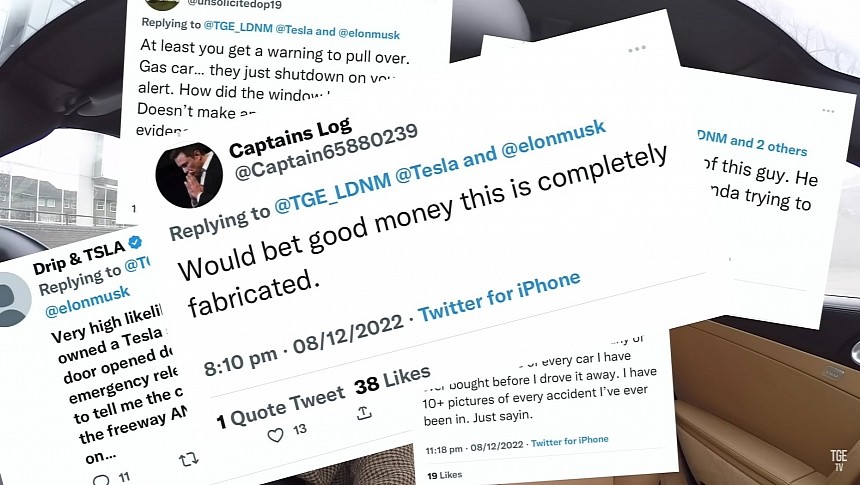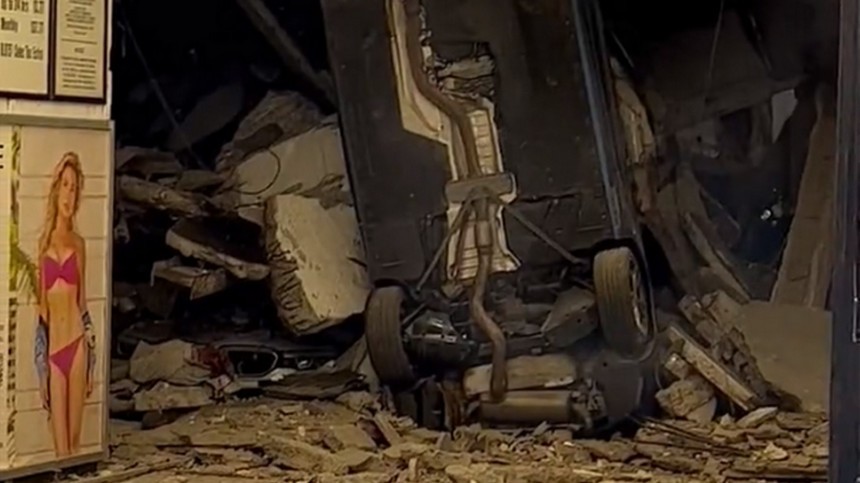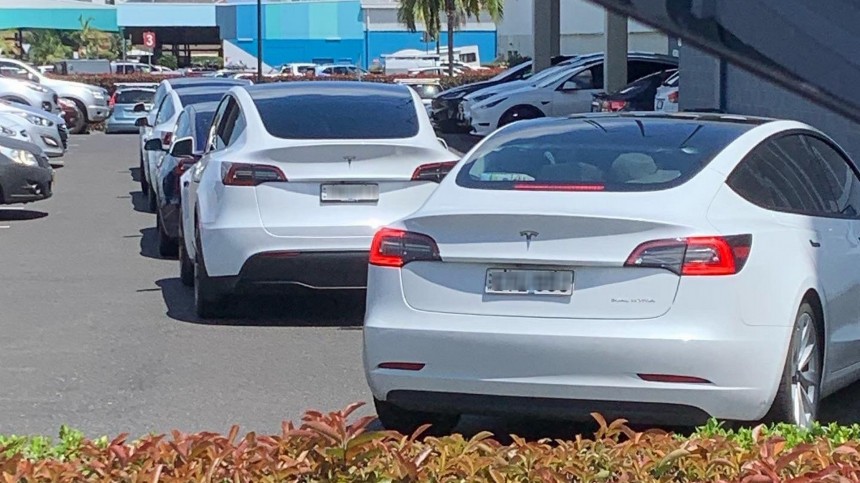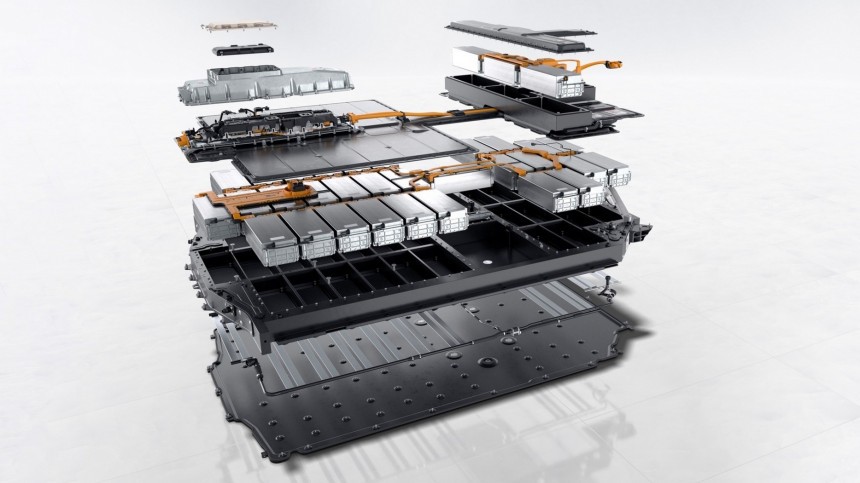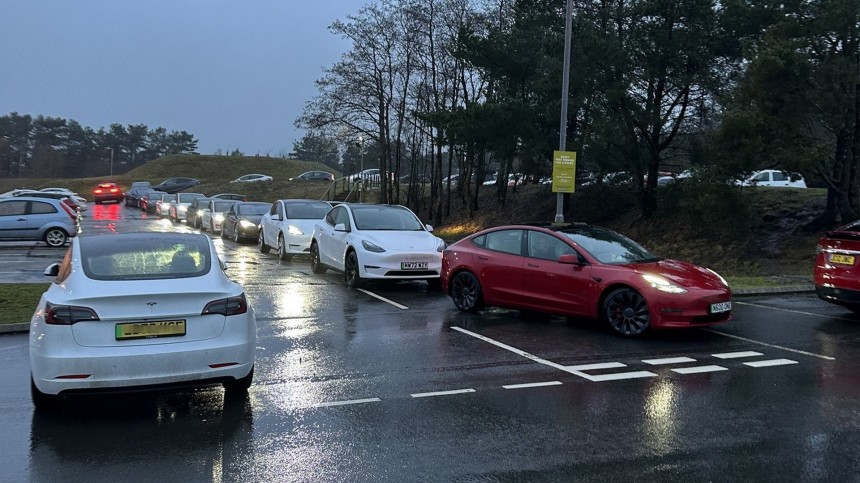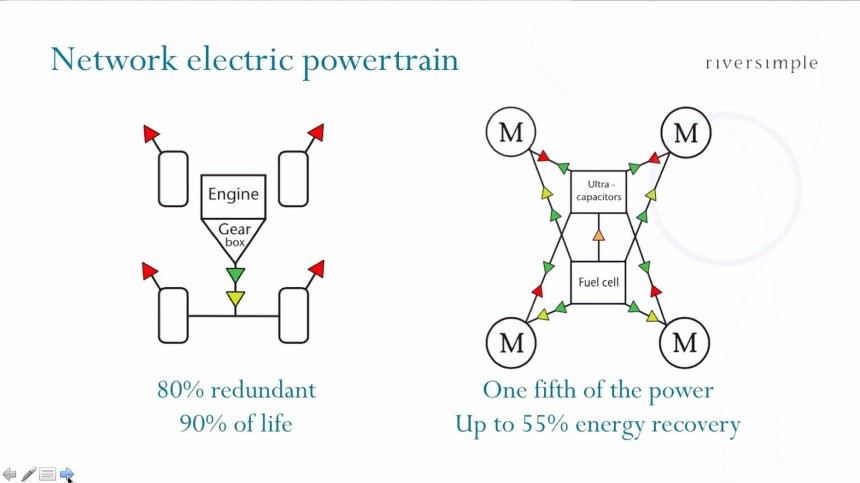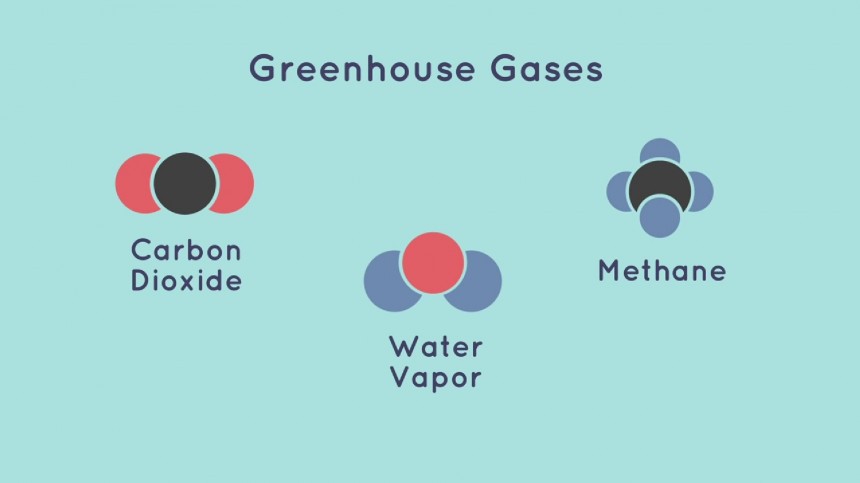When I was at law school, I once faced a fierce debate about what role an attorney should have. I defended that lawyers should fight for a fair verdict for their clients, proportional to their actions. Some of my colleagues said a good attorney should claim their clients were innocent – even if they knew this was not true. Life is cyclical, and here I am again, defending that BEV advocates should give up on conspiracy theories to try to absolve their beloved solution from evident flaws – brought to court by legitimate concerns.
Every once in a while, you will hear that people are trying to kill the electric car again because of the negative articles against them. Or that the oil industry is funding the demise of BEVs because it does not want to go out of business. Some may even claim that journalists write about negative studies just for the clicks or after being paid by God-knows-who to promote internal combustion engines (ICE). It's always everybody else's fault, never something BEV makers should tackle and fix for good.
The high weight of battery packs is something no one can deny. However, when entities such as the British Parking Association warned that old parking buildings could fail if BEVs became the industry standard, their advocates tried to call that a lie. About two weeks later, Little Man Parking's building collapsed in New York due to a lack of maintenance and heavier modern vehicles. That tragedy turned into a practical cautionary tale: what will happen when BEVs are the standard?
A while later, The Telegraph concluded that BEVs might make roads degrade faster due to their higher mass. That was also taken as an attack on electric cars, something that fact-check organizations that advocate for BEVs wanted to dismiss. How impartial and credible could such organizations be when they clearly have a side? Considering heavy vehicles can really ruin roads that were not designed to stand them – regardless of how they are powered – why would the story published by the British newspaper be just to raise fear, uncertainty, and doubt (FUD)? Isn't it easier to consider it a reasonable worry?
Ironically, the heavy weight of BEVs also implies they will demand a lot of raw materials for their batteries. The world will need many more mines to turn all the world's fleet into something powered by electrons. Benchmark Mineral Intelligence said at least 359 new ones are necessary, which will always depend on their production capacities. I've discussed the environmental concerns involving mining more than once. BEV advocates will say that this is the price to pay to stop climate change. Dare to ask if that's the right way to do it, and you will be called a big oil ally.
Suppose BEVs were at least as convenient as internal combustion-engined cars. Well, they are not, and even some of their advocates will recognize these vehicles are not for everyone. However, when anyone states how annoying it is to charge them, the BEV defender's strategy is to downplay the time people lose in the process. After all, you take at least 15 minutes to go to the WC and eat something when you stop, right? That premise alone is already problematic. Supposing everybody did that – which is definitely not the case – that would only work for vehicles like the Porsche Taycan, Lucid Air, and other 800V BEVs. With the adequate fast chargers, mind you.
For all other BEVs, you must double that time and find something else to do while waiting for your ride to charge from 10% to 80%, as most of these cars demand. That's at least half an hour waiting in the best-case scenario, or else, if the chargers are working, if nobody else is using them, and if they deliver the charging speed they promise. What BEV owners currently face are crowded chargers that often do not work and are a lot slower when they do. Wouldn't it be more honest to admit that and focus on solving the issue? Is it so difficult to recognize these vehicles must be more practical?
Try to talk about battery packs being wear parts, and BEV advocates will call you a liar while claiming these components last as long as the cars. That's only true if you consider that it is the battery pack that determines the lifespan of a BEV and not the other way around – when it is the battery pack that keeps up with the rest of the car. Just ask Tesla Model S owners about BMS_u029, BMS_u018, and all other error codes that diagnose the need to replace the battery pack. Ask LEAF owners how much Nissan charged them for a new battery pack: some people saw $35,000 estimates. The way BEVs are conceived, they are disposable, which does not make any sense and creates other environmental problems with more raw materials consumption. In other words, that accelerates Earth Overshoot Day.
BEV owners know they should not fully charge the battery packs to preserve them. They also know that fast charging will shorten the lives of these crucial components, which is why manufacturers recommend only doing that when you really need the extra range. The best way to charge them is slowly. Owners who admit doing things differently are often blamed for anything that goes wrong with the battery packs in their BEVs.
Transport & Environment (T&E) disclosed a study that shows smaller battery packs reduce the demand for raw materials for batteries. Although that is obvious, the organization used this argument to urge governments to restrict the size of BEVs. That would force carmakers to build smaller battery packs, which is an involuntary defense of hybrids and plug-in hybrid vehicles. The higher the demand for batteries, the higher their prices will get. Connect this to the concern about how much a battery pack will last and the total cost of production they represent will get even higher. This is why it does not pay off to replace the battery pack should it fail: a new one will certainly cost more than 50% of the vehicle's value.
As much as BEV advocates deny this, they also face concerns about thermal runaways. Such events can make these vehicles burn to the ground because it is complicated to extinguish these fires: the chemistry provides the oxygen it needs. BEV promoters will say they are safer than ICE cars because they burn less often. Sure: they are newer. However, the Chevrolet Bolt EV and Hyundai Kona Electric show that manufacturing defects can have nasty consequences. Tesla vehicles often burn with no explanation. Some of them hit debris on the roads that perforate their battery packs and start a blaze. The best example of how serious this is comes from Our Next Energy (ONE). The battery maker does not use nickel and cobalt together because they "represent a major thermal runaway risk." Most BEVs currently for sale use these raw materials. Can a company willing to sell battery packs be accused of FUD? Or is it just realistically trying to solve an issue?
Rowan Atkinson tried to discuss all this in an opinion piece for The Guardian. He was sharing frustration more than anything else: he also bought BEVs and got disappointed with them. Try to share his article on Facebook; it will say the information is partially wrong. The actor wrote that greenhouse gas (GHG) emissions in the production of BEVs are 70% higher than those in manufacturing cars powered by engines. Facebook points to a correction about that part. The British newspaper eventually changed his article, which is plain wrong: it was his opinion, his research, his words. Any correction should happen only on the footnotes forwarding to the controversial topics.
The Guardian fixed his text by adding "nearly" to the percentage. It also stressed Atkinson should not have written trucks when the correct reference would be "heavy trucks for long-distance haulage." The most serious error the text had was stating that lithium-ion cell production demanded "many rare earth metals:" they are used in permanent-magnet motors, not batteries. The British newspaper probably changed the text not to be penalized by Google, which is a much more serious journalistic matter than the accusations BEV advocates launch on negative articles. At least it is true.
Ask or investigate the reporters who covered these topics to see if they got any richer. They could eventually earn a few bucks by suing those saying they sold their articles to the oil industry, but it would not be worth the effort. Journalists are used to being bashed by those they expose – and they still earn the same wages, well below what they deserve. Ironically, the articles that seek more desperately for clicks are those that focus on anything Tesla or its CEO does, as irrelevant as it may be. Most of them are pretty positive about them. Why would anyone write that Elon Musk had a headache or thinks autonomous driving will happen this year – he has said the same since 2016 – if it was not for clicks?
What BEV advocates miss big time is that they are more focused on the means for decarbonization than on the goal itself. If they had any genuine environmental concern, they would be promoting Riversimple, the only company that has presented a feasible alternative to big batteries. Its business model wants to change everything we know about personal transportation, car ownership, and even the industry – any industry.
The Rasa is exceptionally efficient with its network electric powertrain, which uses ultracapacitors and a pretty small fuel cell. It is also light, making it even more efficient, with an energy consumption of only 200 MPGe. The car will not be sold: it is part of a mobility service. People will pay to use it, as Riversimple pays to use the resources and components its cars have. That cuts the need to produce more to make more money: everything is a service.
The driver will have everything covered, from maintenance to hydrogen refueling. That inverts the ownership logic. It is Riversimple who worries about efficiency and reliability rather than the driver. Yet, the car is exclusive to the person driving it, making it more personal than car-sharing services: you can leave your belongings in the vehicle with no concerns. It is brilliant, environmentally responsible, and sensible. BEV advocates frequently mock the idea because it uses hydrogen, which they despise even more than gasoline or diesel.
Ironically, the big oil industry is doing just fine. Oil is necessary for much more than burning its products in engines. Plastics, rubber, and tires need it, just to name a few products people do not associate with that raw material. Oil giants are now investing in solar, hydrogen, synthetic fuel, or anything that has to do with clean energy: that's their business now. Sure, they will keep selling gasoline and diesel, but they will happily swap to other products without the same reputational risks.
On top of everything, BEVs will not save the world. According to the latest Intergovernmental Panel on Climate Change (IPCC) update, transportation is responsible for only 15% of man-made greenhouse gases (GHG). Passenger vehicle emissions respond for only part of this total, while airplanes, ships, trains, and heavy trucks also need to improve in that regard. We will not get cleaner with batteries. To make matters worse, it is the energy sector that represents the largest share of GHG: 34%. The industry sector responds to 24%, which shows the big contradiction of pushing BEVs or any other vehicle to save the world: a factory will make them, and buyers will charge them in a power outlet fed by fossil fuels in many countries. That cycle alone corresponds to 58% of GHG emissions.
Anyone seriously willing to cut these emissions will push for nuclear power because it is the only carbon-neutral option with constant and controllable production apart from hydropower. Solar and wind depend on nature and will demand massive batteries to store the energy they produce when nobody needs it. That will require even more mines than BEVs alone will do with their expansion. If we push for more BEVs without making energy clean, we'll just accelerate coal, gas, and oil needs. Again, the only company looking at the bigger picture is Riversimple. Hopefully, more enterprises will realize what really needs to change.
The most likely scenario is that people will keep business as usual – they always do. For BEVs to improve demand and be a feasible clean personal transportation solution for everyone, they must address durability, convenience, and mass. Without that, they will die without external help because most people will ignore them. Those trying to make them prevail despite these flaws should at least admit them instead of accusing the rest of the world of lying to kill baby polar bears and older people in heat waves.
BEVs will not save the planet, but electric cars may save thousands of lives from pollution if we find something better than current batteries to power them – better cells may sort this out; who knows? Battery swapping, flux batteries, and hydrogen fuel cells are other options that keep electric motors powering the wheels. That's the real challenge, not screaming at everybody else that your solution is better just because.
The high weight of battery packs is something no one can deny. However, when entities such as the British Parking Association warned that old parking buildings could fail if BEVs became the industry standard, their advocates tried to call that a lie. About two weeks later, Little Man Parking's building collapsed in New York due to a lack of maintenance and heavier modern vehicles. That tragedy turned into a practical cautionary tale: what will happen when BEVs are the standard?
A while later, The Telegraph concluded that BEVs might make roads degrade faster due to their higher mass. That was also taken as an attack on electric cars, something that fact-check organizations that advocate for BEVs wanted to dismiss. How impartial and credible could such organizations be when they clearly have a side? Considering heavy vehicles can really ruin roads that were not designed to stand them – regardless of how they are powered – why would the story published by the British newspaper be just to raise fear, uncertainty, and doubt (FUD)? Isn't it easier to consider it a reasonable worry?
Suppose BEVs were at least as convenient as internal combustion-engined cars. Well, they are not, and even some of their advocates will recognize these vehicles are not for everyone. However, when anyone states how annoying it is to charge them, the BEV defender's strategy is to downplay the time people lose in the process. After all, you take at least 15 minutes to go to the WC and eat something when you stop, right? That premise alone is already problematic. Supposing everybody did that – which is definitely not the case – that would only work for vehicles like the Porsche Taycan, Lucid Air, and other 800V BEVs. With the adequate fast chargers, mind you.
For all other BEVs, you must double that time and find something else to do while waiting for your ride to charge from 10% to 80%, as most of these cars demand. That's at least half an hour waiting in the best-case scenario, or else, if the chargers are working, if nobody else is using them, and if they deliver the charging speed they promise. What BEV owners currently face are crowded chargers that often do not work and are a lot slower when they do. Wouldn't it be more honest to admit that and focus on solving the issue? Is it so difficult to recognize these vehicles must be more practical?
BEV owners know they should not fully charge the battery packs to preserve them. They also know that fast charging will shorten the lives of these crucial components, which is why manufacturers recommend only doing that when you really need the extra range. The best way to charge them is slowly. Owners who admit doing things differently are often blamed for anything that goes wrong with the battery packs in their BEVs.
Transport & Environment (T&E) disclosed a study that shows smaller battery packs reduce the demand for raw materials for batteries. Although that is obvious, the organization used this argument to urge governments to restrict the size of BEVs. That would force carmakers to build smaller battery packs, which is an involuntary defense of hybrids and plug-in hybrid vehicles. The higher the demand for batteries, the higher their prices will get. Connect this to the concern about how much a battery pack will last and the total cost of production they represent will get even higher. This is why it does not pay off to replace the battery pack should it fail: a new one will certainly cost more than 50% of the vehicle's value.
Rowan Atkinson tried to discuss all this in an opinion piece for The Guardian. He was sharing frustration more than anything else: he also bought BEVs and got disappointed with them. Try to share his article on Facebook; it will say the information is partially wrong. The actor wrote that greenhouse gas (GHG) emissions in the production of BEVs are 70% higher than those in manufacturing cars powered by engines. Facebook points to a correction about that part. The British newspaper eventually changed his article, which is plain wrong: it was his opinion, his research, his words. Any correction should happen only on the footnotes forwarding to the controversial topics.
The Guardian fixed his text by adding "nearly" to the percentage. It also stressed Atkinson should not have written trucks when the correct reference would be "heavy trucks for long-distance haulage." The most serious error the text had was stating that lithium-ion cell production demanded "many rare earth metals:" they are used in permanent-magnet motors, not batteries. The British newspaper probably changed the text not to be penalized by Google, which is a much more serious journalistic matter than the accusations BEV advocates launch on negative articles. At least it is true.
What BEV advocates miss big time is that they are more focused on the means for decarbonization than on the goal itself. If they had any genuine environmental concern, they would be promoting Riversimple, the only company that has presented a feasible alternative to big batteries. Its business model wants to change everything we know about personal transportation, car ownership, and even the industry – any industry.
The Rasa is exceptionally efficient with its network electric powertrain, which uses ultracapacitors and a pretty small fuel cell. It is also light, making it even more efficient, with an energy consumption of only 200 MPGe. The car will not be sold: it is part of a mobility service. People will pay to use it, as Riversimple pays to use the resources and components its cars have. That cuts the need to produce more to make more money: everything is a service.
Ironically, the big oil industry is doing just fine. Oil is necessary for much more than burning its products in engines. Plastics, rubber, and tires need it, just to name a few products people do not associate with that raw material. Oil giants are now investing in solar, hydrogen, synthetic fuel, or anything that has to do with clean energy: that's their business now. Sure, they will keep selling gasoline and diesel, but they will happily swap to other products without the same reputational risks.
On top of everything, BEVs will not save the world. According to the latest Intergovernmental Panel on Climate Change (IPCC) update, transportation is responsible for only 15% of man-made greenhouse gases (GHG). Passenger vehicle emissions respond for only part of this total, while airplanes, ships, trains, and heavy trucks also need to improve in that regard. We will not get cleaner with batteries. To make matters worse, it is the energy sector that represents the largest share of GHG: 34%. The industry sector responds to 24%, which shows the big contradiction of pushing BEVs or any other vehicle to save the world: a factory will make them, and buyers will charge them in a power outlet fed by fossil fuels in many countries. That cycle alone corresponds to 58% of GHG emissions.
The most likely scenario is that people will keep business as usual – they always do. For BEVs to improve demand and be a feasible clean personal transportation solution for everyone, they must address durability, convenience, and mass. Without that, they will die without external help because most people will ignore them. Those trying to make them prevail despite these flaws should at least admit them instead of accusing the rest of the world of lying to kill baby polar bears and older people in heat waves.
BEVs will not save the planet, but electric cars may save thousands of lives from pollution if we find something better than current batteries to power them – better cells may sort this out; who knows? Battery swapping, flux batteries, and hydrogen fuel cells are other options that keep electric motors powering the wheels. That's the real challenge, not screaming at everybody else that your solution is better just because.
